There was no Viagra in 1918, but there were plenty of goats.
At the time, the alleged sexual prowess of goats enjoyed legendary status. So it was that Kansas physician John R Brinkley made a small fortune surgically implanting goat testicles in men seeking to enhance or restore their own virility.
Never mind that the procedure failed to deliver the promised benefit, that Brinkley was a medical school dropout who bought a diploma for $100 or that most of his patients died during or shortly after surgery. A steady supply of men handed over their cash to Brinkley’s scruples and their privates to his scalpel.
I hope you agree with me that the decision to undergo Brinkley’s procedure was irrational. The risks of infection, mutilation, sterility and death were clear … yet otherwise presumably intelligent men convinced themselves to go ahead with implantation anyway.
Why?
Of course, you already know the answer. People who really, really want to believe will believe — regardless of where the evidence points. Brinkley’s patients really, really wanted the promised benefit, so they embraced his trumped-up ‘success stories’ and disqualified the negative outcomes.
We haven’t changed much in 102 years. Consider the people you know who set aside evidence and common sense in favour of staying in bad relationships, lending money to losers or wearing magnets to ward off arthritis — all motivated by an acute desire to believe.
Or consider the Heads and school marketers who believe their programs are working even when the evidence says otherwise or, more often, when there is no evidence at all.
Do you make these six irrational leaps in school marketing?
All people, even Heads and school marketers, are subject to irrationality. MRI scans indicate that we are wired to believe the first possibility that enters our head. Taking a rational second look isn’t instinctive. It’s something we must train ourselves to do.
Much of today’s marketing works, but a good deal more has little or no effect, and some tactics can actually drive enrolment enquiries down. This is not to imply that school marketers wilfully deceive. Many have simply and unwittingly been trapped by time-honoured marketing myths.
Here are six out of many possible examples.
Irrational leap #1: “Everyone knows …”
Bad ideas are often embraced — and good ones dismissed — thanks to what ‘everyone knows’. ‘Everyone knows’ that no-one reads long ads, watches late-night television or buys when they sense that you’re trying to sell them something. So marketers keep copy under 100 words, spend a fortune on prime time and sacrifice selling to subtlety.
The trouble is that these are cases in which ‘everyone’ is mistaken: long ads outsell short ones, advertising on late-night TV generates more orders than in prime time and blatantly promotional advertising outsells holding back.
Given how often ‘everyone’ is right, deference is understandable. Everyone knows — and rightly so — not to play catch with a hornet’s nest, stick a finger in a fan or pick on someone bigger than one’s own size. But, on the other hand, not too long ago ‘everyone’ knew that our planet was stationary, time was constant, stress caused ulcers and Iraq was stockpiling weapons of mass destruction. Marketing is rife with what ‘everyone knows’ that turns out not to be so.
Irrational leap #2: “My tummy tells me …”
Raise your hand — or just roll your eyes — if your Board or school marketer ever embraced a bad idea or rejected a good one with, “I’m going with my gut on this one — and my gut is never wrong.”
It’s doubtful that anyone’s gut intuition is right even most of the time. More often, hindsight and selection biases cause people to overlook times when said gut’s prognostications don’t pan out. Or they never know about those times, because employees fearful of ‘shot messenger syndrome’ avoid bearing bad news.
Irrational leap #3: “Research shows …”
If you show storyboards to groups of 10 to 20 people who say, “Yup, that commercial would make me buy,” you have a winner, right? If you phone 5,000 people and 80 percent say they’ll switch to your school if you change the tagline, they will, right?
Nope. Focus group participants told Telebrands CEO AJ Kubani that they would cheerfully pay $19.95 for his RoboMaid product. But when he opened up a trunk of ready-to-purchase RoboMaids, no-one bought.
Such cases are not unusual. If you ask people what they do, why they do it or what they think they would do in a hypothetical situation, you’ll learn much about their self-concept and nothing about their behaviour.
Don’t believe me? Ask people — even in an anonymous survey — how often they wash after using the rest room. Then hide in a stall and count how many actually wash. The difference between what people believe about themselves and what you observe them do (or not do) will surprise you.
Irrational leap #4: “Awareness is up …”
Advertising was invented to deliver a pitch in place of a live salesperson. Its measure of success was the number of people who purchased. Later, advertisers began judging their work by the number of people who noticed or remembered a campaign. Today, many advertisers believe that an ad has done its job if it draws notice.
To put this silly notion to the test, think about the Leyland P76, New Coke and Vegemite iSnack 2.0, These failed ventures still enjoy top-of-mind awareness.
Irrational leap #5: “Enrolment enquiries are up …”
It sounds convincing to say, “Enrolment enquiries went up when we ran the ads, so the campaign worked.” Unfortunately, that line of reasoning is based on a logical fallacy well-enough known to have its own Latin name: Post hoc, ergo propter hoc – ‘after this, therefore because of this.’
It’s an easy leap to make, since what happens first often does cause what happens next. If you experience indigestion after overeating, you can safely blame the overeating. But coincidence can fool us. If enquiries surged in the wake of your marketing campaign, congratulations. But you’ll need more than that to establish that the campaign caused it and not parent dissatisfaction at your competitor school.
Irrational leap #6: “But it won lots of awards …”
A quick look at advertising award competitions reveals categories like Best Photography, Best Use of Humour, Best Design, Best Editing and Best Copywriting. Everything, it seems, except Sold the Most Widgets.
It’s a funny thing. Awards given to salespeople — like your enrolments team — are tied to numbers. I bet you’ve never seen an enrolment professional receive an award for Funniest Pitch, Best Jingle or Most Original Attire.
Admit that the number of awards your work garners is great for your ego and encouragement for your team — but it has nothing to do with enrolments.
Towards rational marketing
1. Conduct a valid predictive test.
The trick is to quit asking people to tell you their behaviour, and discretely watch it instead.
How do you suppose the retail industry learned that people in the US tend to move to their right upon entering a store? Hint: not by asking them in focus groups or phone surveys. Researchers hid in stores and watched.
There are many ways to put prospective parents in a position to show you how they’ll behave; all it takes is a little imagination. Here’s one example. Say you want to choose between headline A and headline B. Create two mailouts, digital display ads or emails that are identical but for the headline. Send headline A to half of a sample list of your market, and headline B to the other half. Now, count the replies. You can be pretty sure that the headline pulling more replies is stronger.
To be more than just pretty sure, retest. If you get the same results, the evidence is that you’re on solid ground.
2. Take the emotion out of your decisions.
The passion to be right is intoxicating. Sober up. Your objective is to generate enrolment leads, not to bolster your ego. As you design a valid test, resolve in advance to accept the results, even if they fail to support your hunches.
3. Resist the urge to jump to conclusions.
Logic leaps are beguiling. Force yourself to collect valid evidence. Remain sceptical about what the evidence says — as opposed to what you want it to say.
Warding off bean counters
The more you train yourself to eschew unwarranted leaps and instead approach marketing from a sober, rational standpoint, the more you will find yourself creating and refining marketing that is demonstrably and measurably successful.
It’s too late to save Dr Brinkley’s patients. I’m afraid it’s also too late for the goats. But it’s not too late for your school marketing.
- Marketers are prone to making irrational leaps.
- You need to train yourself to think rationally about your marketing.
- School marketing can be demonstrably and measurably successful.
- Identify irrational leaps and teach yourself (and your team) to avoid them.
Steve Cuno is the Founder of The Response Agency, a direct-response marketing firm based in Salt Lake City, USA. He is author of Prove It Before You Promote It: How to Take the Guesswork Out of Marketing. stevecuno.com







